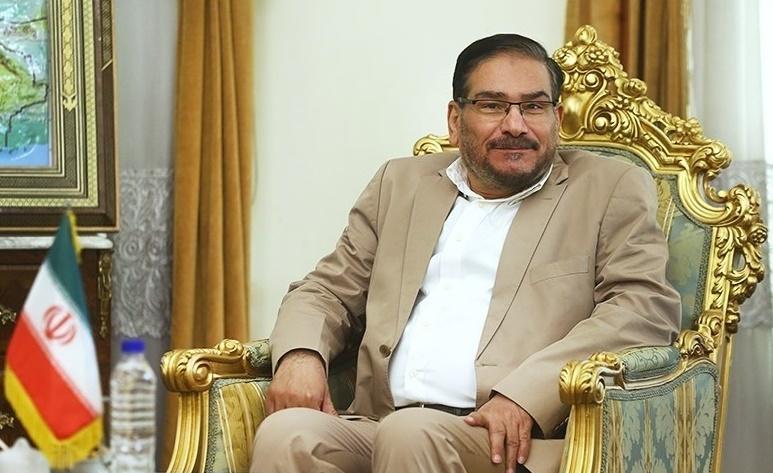The top Iranian security official and a longtime ally of Supreme Leader Ali Khamenei was announced to be stepping down from the position after serving 10 years. The resignation follows the deal two months prior between Iran and Saudi Arabia to normalize relations and end a political rift.
Ali Shamkhani, the country’s top security official and an ally of Khamenei, would be stepping down as the secretary of Iran’s Supreme National Security Council after serving in the role for ten years, according to state media on Monday. Shamkhani stepped down two months after the signing of a China-brokered deal with Saudi Arabia, ending the political rift between the two countries. State television later reported that Khamenei had made Shamkhani his political adviser and that Revolutionary Guards commander, Ali Akhbar Ahmadian, would be succeeding Shamkhani as national security chief.
An Iranian insider said earlier that the change in leadership in the Supreme National Security Council would unlikely impact policies and that Shamkhani was being considered for a more important position.
Shamkhani was appointed to the Supreme National Security Council in 2013 and previously served as Iran’s defense minister under former Iranian President Mohammad Khatami from 1997 to 2005. Shamkhani also previously joined Iran’s Revolutionary Guards shortly after its formation in 1979 and was its deputy commander from 1981 to 1988.
Ahmadian served as the joint chief of staff of the Revolutionary Guards in the 2000s and became the leader of its strategic center.
Meanwhile, a report by the Associated Press found that a new Iranian atomic facility near its Natanz facility would likely be very deep underground for it to be destroyed by air strikes. Citing experts and satellite images, the report said Iran has been digging tunnels into a mountain near its Natanz nuclear site.
The report said the installation of this new facility is poised to complicate the efforts by the West to curb Iran’s nuclear program, which Tehran has long argued would be used for peaceful purposes. According to the director of the Washington-based Arms Control Association, Kelsey Davenport, completing such a facility “would be a nightmare scenario that risks igniting a new escalatory spiral.”
Photo: Mohammadali Marizad (Tasnim News Agency)/Wikimedia Commons(CC by 2.0)



 U.S.-India Trade Framework Signals Major Shift in Tariffs, Energy, and Supply Chains
U.S.-India Trade Framework Signals Major Shift in Tariffs, Energy, and Supply Chains  U.S. Lawmakers to Review Unredacted Jeffrey Epstein DOJ Files Starting Monday
U.S. Lawmakers to Review Unredacted Jeffrey Epstein DOJ Files Starting Monday  Iran–U.S. Nuclear Talks in Oman Face Major Hurdles Amid Rising Regional Tensions
Iran–U.S. Nuclear Talks in Oman Face Major Hurdles Amid Rising Regional Tensions  China Warns US Arms Sales to Taiwan Could Disrupt Trump’s Planned Visit
China Warns US Arms Sales to Taiwan Could Disrupt Trump’s Planned Visit  U.S. Sanctions on Russia Could Expand as Ukraine Peace Talks Continue, Says Treasury Secretary Bessent
U.S. Sanctions on Russia Could Expand as Ukraine Peace Talks Continue, Says Treasury Secretary Bessent  UAE Plans Temporary Housing Complex for Displaced Palestinians in Southern Gaza
UAE Plans Temporary Housing Complex for Displaced Palestinians in Southern Gaza  TrumpRx.gov Highlights GLP-1 Drug Discounts but Offers Limited Savings for Most Americans
TrumpRx.gov Highlights GLP-1 Drug Discounts but Offers Limited Savings for Most Americans  Missouri Judge Dismisses Lawsuit Challenging Starbucks’ Diversity and Inclusion Policies
Missouri Judge Dismisses Lawsuit Challenging Starbucks’ Diversity and Inclusion Policies  Trump Rejects Putin’s New START Extension Offer, Raising Fears of a New Nuclear Arms Race
Trump Rejects Putin’s New START Extension Offer, Raising Fears of a New Nuclear Arms Race  Norway Opens Corruption Probe Into Former PM and Nobel Committee Chair Thorbjoern Jagland Over Epstein Links
Norway Opens Corruption Probe Into Former PM and Nobel Committee Chair Thorbjoern Jagland Over Epstein Links  Trump Says “Very Good Talks” Underway on Russia-Ukraine War as Peace Efforts Continue
Trump Says “Very Good Talks” Underway on Russia-Ukraine War as Peace Efforts Continue  New York Legalizes Medical Aid in Dying for Terminally Ill Patients
New York Legalizes Medical Aid in Dying for Terminally Ill Patients  Pentagon Ends Military Education Programs With Harvard University
Pentagon Ends Military Education Programs With Harvard University  Trump Signs “America First Arms Transfer Strategy” to Prioritize U.S. Weapons Sales
Trump Signs “America First Arms Transfer Strategy” to Prioritize U.S. Weapons Sales  Trump Allows Commercial Fishing in Protected New England Waters
Trump Allows Commercial Fishing in Protected New England Waters  Trump Signs Executive Order Threatening 25% Tariffs on Countries Trading With Iran
Trump Signs Executive Order Threatening 25% Tariffs on Countries Trading With Iran  Marco Rubio Steps Down as Acting U.S. Archivist Amid Federal Law Limits
Marco Rubio Steps Down as Acting U.S. Archivist Amid Federal Law Limits 





























